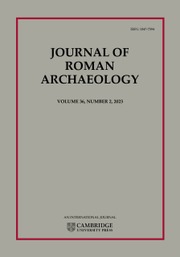Article contents
Charred plant remains of the Archaic period from the Forum and Palatine
Published online by Cambridge University Press: 16 February 2015
Extract
Our understanding of the arable economy of the early centuries of Rome has been based largely on ancient literary sources to give an idea of the range of crops grown in the area and their possible uses. For Archaic Rome in particular, very little evidence from the physical remains of crops has been available, and this has limited any serious comparison between archaeological evidence and what the literary sources may suggest about the arable agriculture of the early city. Archaeobotanical evidence for the agricultural economy of Rome and its surrounds in the pre-urban period has largely depended upon the work of Hans Helbaek: in the 1950s and 1960s he carried out the study of plant remains recovered in three areas of the Forum (Helbaek 1953, 1956, 1960). His studies were limited, however, by the absence of systematic sampling strategies and particularly by inadequate retrieval methods. Flotation techniques were not employed, and this prevented the potential recovery of smaller plant items such as small cereal grains (e.g., millet) and crop by-products (e.g., chaff fragments and small weed seeds). This led to an incomplete picture of the range of crops used and also led to difficulties in the identification of cereal grains owing to the absence of chaff fragments.
- Type
- Archeological notes
- Information
- Copyright
- Copyright © Journal of Roman Archaeology L.L.C. 2001
- 6
- Cited by




